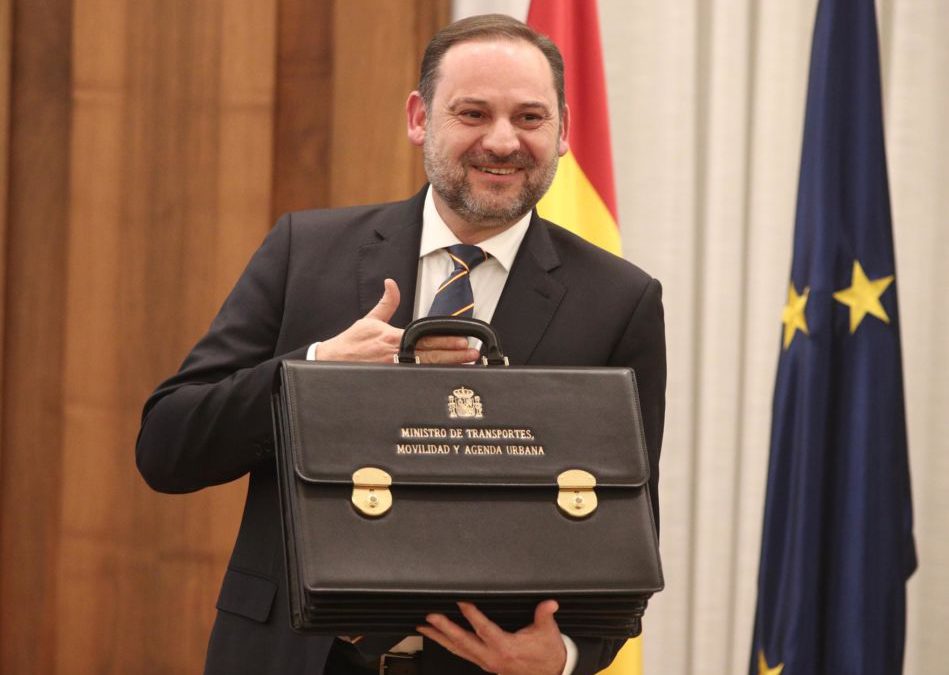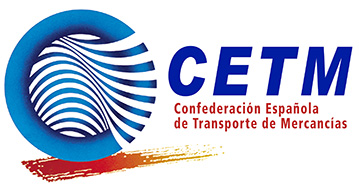The Spanish Confederation of Freight Transport (CETM) values the creation of the new Ministry of Transport, Mobility and Urban Agenda.
We are confident that the inclusion in the name of the ministry of the term “transport”, which fulfils one of our historical demands, and that one of the most trusted men of the President of the Government, José Luis Ábalos, has been placed at the head of the ministry, is a declaration of intent by the new Government to ensure that transport takes on a more important place in the Government’s strategy for the coming years. For our part, from the CETM we will demand that the new Government does not merely change its name and that the needs of a sector that is vital for the functioning of the country are met quickly and effectively.
In this regard, we would like to remind you that road transport is the backbone of the so-called welfare society, which is developing thanks to our ability to bring consumers the products they need efficiently and regularly. And the best proof that transport satisfactorily fulfils this task is that shippers freely choose us to transport more than 85% of the products we consume every day.
Similarly, transport is a great generator of wealth and employment in our country. According to a study on this sector carried out by the CEOE, it contributes 4.8% to the Spanish GDP, while in terms of employment, transport activity represents 4.4% of total employment. And let us not forget that the UN itself has urged all countries in the world to commit to transport as a key strategic element for their economic growth. Furthermore, the fiscal contribution via taxes of road freight transport is by far the highest of all modes of transport, exceeding 12,500 million euros.
With these figures on the table, we will demand that a cultural change is finally addressed, aimed at adopting measures that will improve the legislative, fiscal, labour and social conditions of our sector, included in a package of 12 demands that we deliver to the Government, through the National Road Transport Committee (CNTC, spanish acronym) in December 2019 and whose implementation we demand as soon as possible.
Finally, we do not want to forget that these twelve measures do not include some of the major challenges that the new Ministry of Transport, Mobility and Urban Agenda must face, such as sustainability, the European Mobility Package and digitalisation, among others.
The adoption of sustainable development policies and the implementation of measures that minimise the impact of transport on the environment are essential aspects for promoting this process, which requires a level of responsibility and commitment in which road freight transport has been involved for a long time. In fact, in order to start working on these aspects, the CETM has already requested a meeting with both José Luis Ábalos, Minister of Transport, Mobility and Urban Agenda, and Teresa Ribera, Minister of Ecological Transition and Demographic Challenge.
In our opinion, the promotion of a Sustainable Mobility Law, which is one of the main objectives set by José Luis Ábalos for this legislature, must be the result of a State pact in which our participation is essential to resolve the current inconsistencies and establish clear policy and investment criteria that effectively respond to the challenges of our activity.
The implementation of new technologies in transport and logistics companies requires a specific aid plan to train professionals who are capable of applying the digital strategies necessary today to increase business opportunities. In this aspect, we would like to highlight our unquestionable commitment to the implementation of internal processes that are more beneficial to the environment through digitalisation, such as the use of electronic CMR, which frees transporters from having to carry documentation in their vehicles, speeds up relations with shippers and the end customer and also avoids unnecessary paperwork.
With regard to the Mobility Package, we are confident that both the Parliament and the European Council will approve it definitively, as the road haulage sector needs the regulations to provide a solution to its needs. We therefore hope that the Eastern countries will not obstruct the proceedings in their interests and that the Mobility Package will be brought to light in order to put an end to irregular practices.
Finally, the CETM is committed to working with the new government, defending the legitimate interests of the transport of goods and services.


